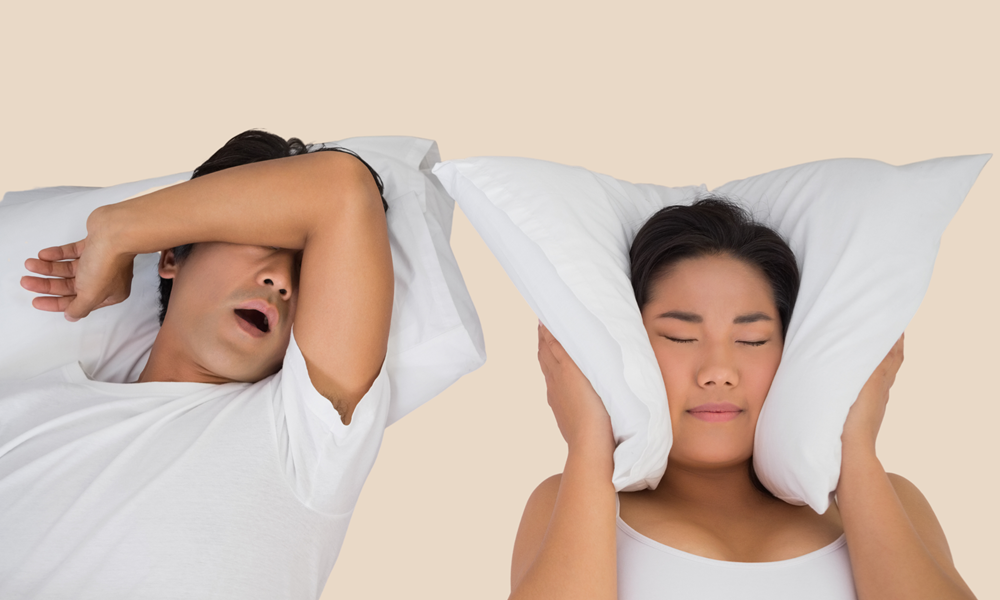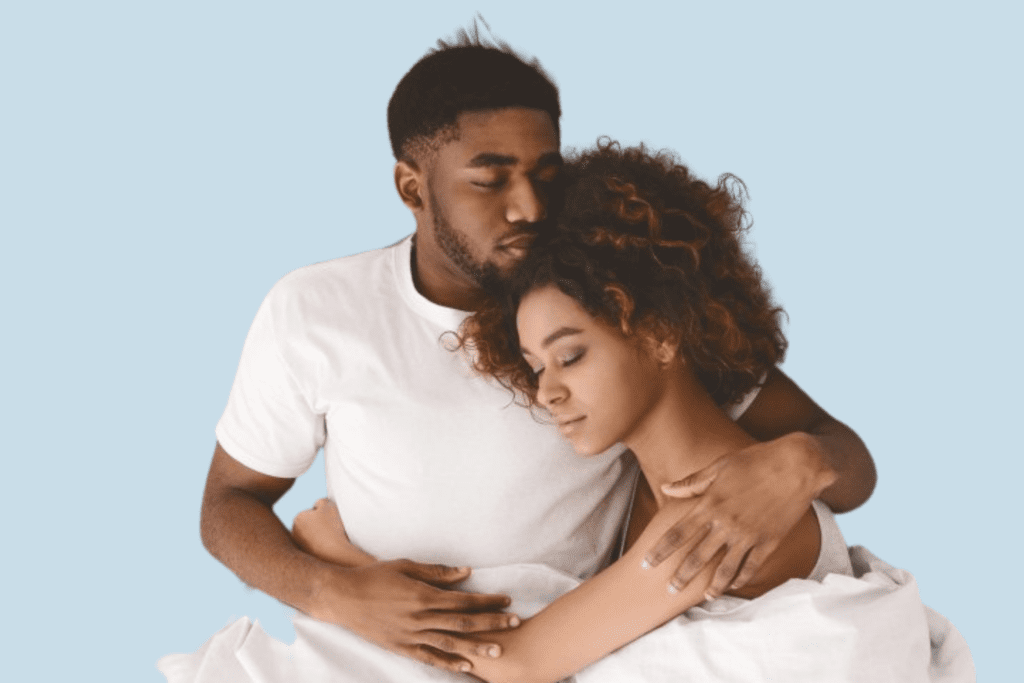Snoring Solutions
Aspects of Snoring
Numerous individuals worldwide snore, with approximately 50% of adults experiencing occasional snoring. While snoring is often perceived as a disruptive habit that can disturb sleeping partners, it can also serve as an indicator of a more serious medical condition—sleep apnea.
The primary cause of the loud, rhythmic noise associated with snoring is the compromised structure of the upper airway. Dr. Laura Miller explains that when relaxed throat tissues impede the flow of inspired air, snoring occurs, producing a frequent, loud, and bothersome sound.
While snoring may be considered a minor annoyance to those nearby, it can also be a potential signal of a more critical health issue—obstructive sleep apnea. In the United States alone, nearly 37 million adults regularly experience loud snoring, emphasizing the prevalence and significance of this phenomenon.

Schedule a consultation with our specialist from Sweet Dreams Connecticut with locations in Madison. During your visit, our team will conduct a comprehensive assessment to identify the underlying causes of your snoring and determine an appropriate treatment plan.
Typically, snoring is a result of relaxed tissues in the throat, causing the airway to narrow and amplify the sound. Increased airflow resistance from these tissues contributes to the loudness of snoring. Factors such as nasal fractures, nasal turbinate hypertrophy, or a deviated septum can also play a role in snoring.
Symptoms associated with sleep-disordered breathing, such as nasal obstruction, dry mouth, sore throat, and restless sleep, may indicate the need for further investigation. While snoring itself is not inherently dangerous, the presence of additional symptoms like excessive daytime sleepiness, night-time gasping or choking, high blood pressure, uncontrolled weight gain, or chest pain may warrant a screening home sleep study (polysomnogram) for a more comprehensive evaluation.
Ah, the nocturnal serenade of snoring—a resonant melody that fills the room. Is there a thunderous reverberation disrupting your bedroom tranquility? If you or a sleep companion resemble a hibernating grizzly bear, it’s a telltale sign of snoring, a familiar nocturnal tune for many. Yet, if you find yourself or your loved ones questioning the increasing volume or frequency of these melodic vibrations, let’s explore some intriguing signs that suggest it might be time to tune in to the nighttime symphony:

Lullaby of Fatigue: If you wake up feeling weary despite a full night’s sleep.
Bedside Discord: Your sleep partner might not appreciate your nighttime symphony, potentially depriving you of the deep, rejuvenating sleep you require. If they remark that your snoring rivals a drum set, it’s time to take heed.
Breathless Intervals: Snoring occasionally introduces an unexpected twist—intermittent pauses in breathing during sleep. If you or your partner notice these breath-holding moments, it could signal sleep apnea.
Gasping for Breath: Witnessing your partner struggle for air or choke during sleep can be unsettling, indicating that snoring goes beyond a lighthearted melody.
Parched Mouth or Throat: Snoring can desiccate your mouth or throat, leaving you feeling parched or waking up with a morning soreness akin to a night of karaoke.
Sleeping Positions: Have you observed changes in snoring volume when sleeping on your back? Snoring may amplify in this position due to the relaxation of the tongue and soft tissues, partially obstructing the airway.
Daytime Drowsiness: If your days resemble a constant stroll through sleepiness, marked by incessant yawning and difficulty staying awake, snoring may be impacting your sleep quality.
Morning Headaches: Waking up with a headache could indicate that snoring disrupts your sleep and affects your oxygen levels.
Anecdotal Snores: If friends or family regale you with amusing tales of your nocturnal concert, it’s time to assess whether your snoring is becoming a regular event.
If you or your partner notice any of these indicators, fear not! Attending to your sleep health is crucial. Seeking guidance from a healthcare professional, such as a sleep specialist, can help identify the cause of snoring and explore appropriate solutions for a quieter and more restful night’s sleep.
Embrace the signs and embark on the journey to a serene night’s sleep—with no solo snoring performances! Sleep soundly!
The Signs of Snoring
Gathering insights into your snoring patterns involves a thorough inquiry from your healthcare provider. The Team will inquire about the frequency and sound of your snoring, as well as how your diet and lifestyle impact your sleep. Additionally, a comprehensive examination will be conducted, encompassing measurements of blood pressure, listening to your heart, and assessing your mouth, nose, and throat.
To delve deeper into your sleep patterns, a sleep study (polysomnogram) may be recommended by your doctor. This study can be conducted either overnight in a sleep lab or through a home-based setup, Ask Sweet Dreams Connecticut how.
The sleep study assesses various aspects, including:
- Brainwave patterns
- Breathing patterns, noting any pauses or gasps for air
- Oxygen flow through the heart
- Arm and leg movements, as well as tossing and turning during sleep
- Sleep cycles and occurrences of snoring
This comprehensive evaluation serves as a foundation for snoring treatment with Dr. Laura Miller and Sweet Dreams Connecticut.
In terms of non-surgical interventions for snoring, your doctor may propose specific strategies to enhance your sleeping posture or open up your airways.
Some Solutions Include:
- Lifestyle adjustments: Modifying habits such as avoiding alcohol before bedtime, changing sleep positions, and maintaining a healthy weight.
- Medication: Cold and allergy medications can alleviate breathing difficulties by clearing nasal congestion.
- Nasal strips: Thin, flexible bands adhering to the outside of your nose can keep nasal passages open.
- Oral appliances: Using a device or mouthguard during sleep helps maintain proper jaw positioning, facilitating airflow. Note that a mouthguard used for activities like sports won’t address snoring.
When to Seek Advice
Snoring can be an indicator of deeper health concerns, making timely diagnosis and consultation with your doctor vital. Should you struggle with breathing difficulties during sleep or consistent daytime tiredness, it’s important to arrange a medical consultation immediately.
Although not all snoring points to sleep apnea, it is often a significant sign. Sleep apnea, a condition that interrupts normal breathing patterns during sleep, can cause gasping, breath pauses, morning headaches, daytime fatigue, and especially loud snoring that may disrupt your partner’s rest.
